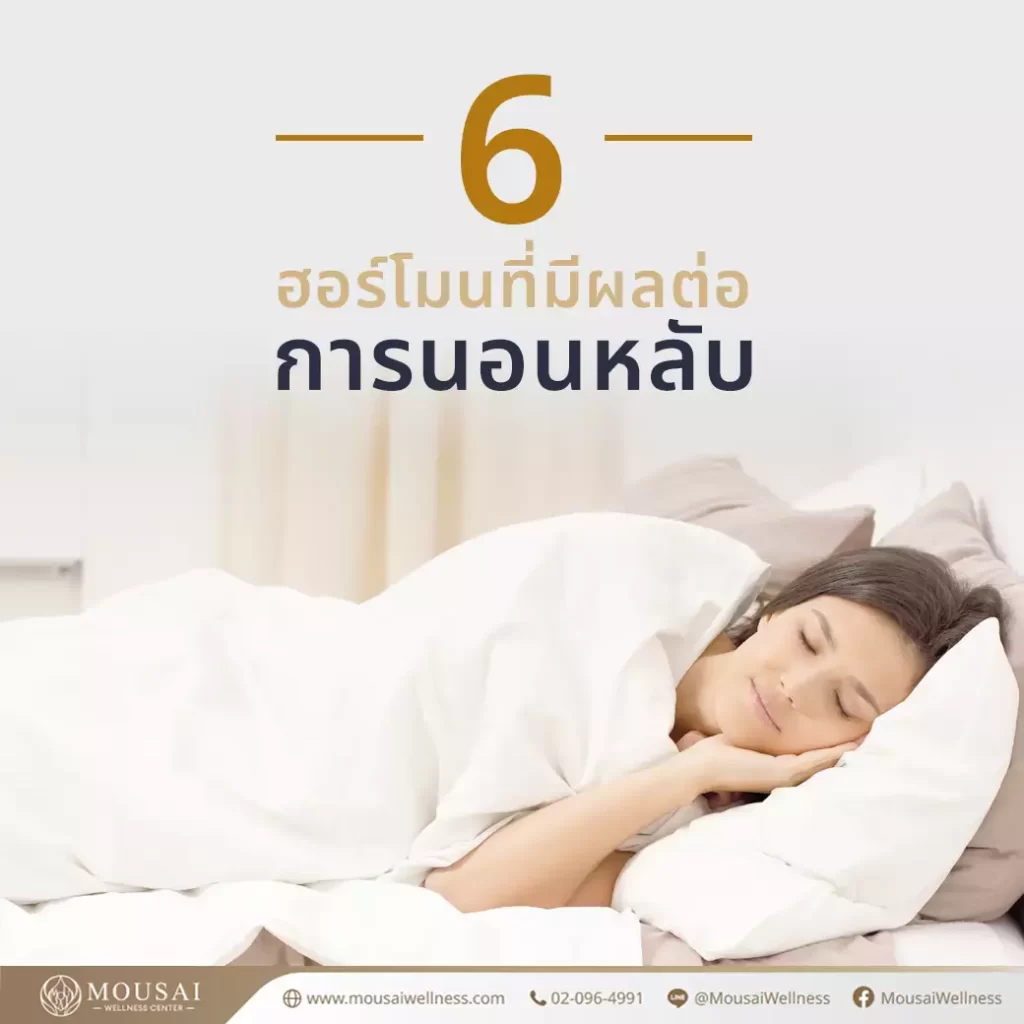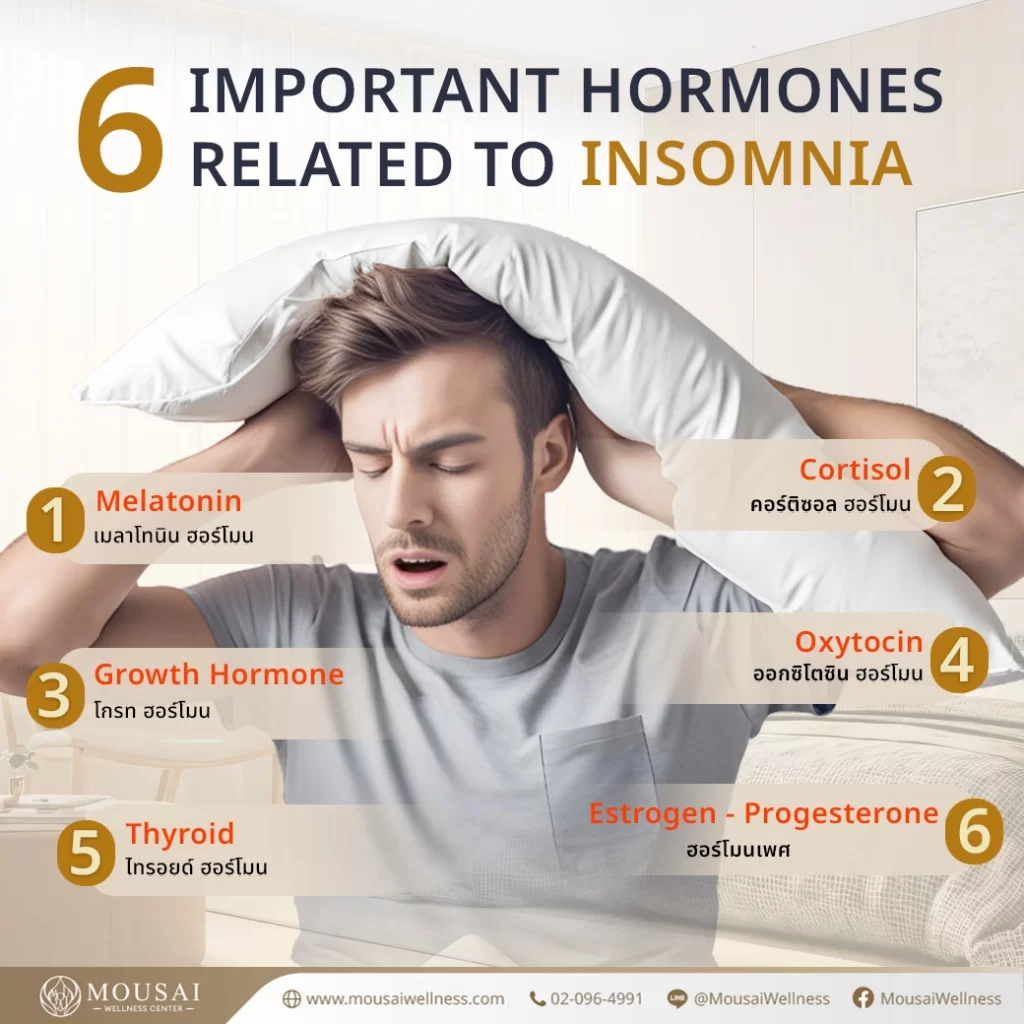
Hormones play a vital role in regulating the body’s sleep cycle. An imbalance in these hormone levels can lead to sleep problems such as insomnia, frequent awakenings, or inadequate rest. Therefore, maintaining hormonal balance is essential for quality sleep and overall good health.
1. Melatonin – The “Sleep Hormone” 🛌
Melatonin is produced by the pineal gland in the brain and is released during nighttime. It prepares the body for sleep by inducing drowsiness, lowering body temperature, and slowing down the activity of the central nervous system. In addition, melatonin acts as an antioxidant, helping to slow the aging process and reduce the risk of cancer. Lucky us! 🥱
2. Cortisol – The “Stress Hormone” 😡
Cortisol is the hormone responsible for managing stress. When the body is under stress, cortisol levels rise, which can lead to restlessness and poor sleep quality. That’s why stress reduction is essential for better sleep. Activities like regular exercise and relaxing before bed can help regulate cortisol levels – reducing stress while promoting better sleep at the same time!
3. Growth Hormone 🌃
Growth hormone plays a role in sleep regulation, particularly in women during their menstrual cycle. This hormone peaks just before menstruation, which can lead to insomnia. Other related symptoms such as chills, headaches, and mood swings can also disrupt sleep. Remedies include light exercise, drinking herbal tea, or getting a relaxing massage before bedtime — all of which help the body get the rest it needs.

4. Oxytocin – The “Love Hormone” 🎎
Oxytocin plays an important role in both sleep and emotional bonding. Known as the “love hormone,” it is released during physical affection, social bonding, and emotional connection. Oxytocin helps reduce stress and anxiety, promoting feelings of calmness and security, which in turn supports better sleep quality.
5. Thyroid Hormone 🦋
When the body lacks thyroxine, a key hormone produced by the thyroid gland, it can lead to fatigue, exhaustion, depression, mood swings, and sleep problems. Thyroid hormones help regulate sleep and alertness. A deficiency may cause difficulty falling asleep or even sleep apnea (temporary pauses in breathing during sleep).
How to manage this: Taking thyroid hormone replacement therapy (as prescribed by a doctor) and improving sleep habits—such as regular exercise, avoiding stimulants before bedtime, and ensuring adequate rest—can help enhance sleep quality.
Managing this condition may require hormonal balance through medical treatment and lifestyle changes. Establishing consistent sleep routines, avoiding stimulants, and maintaining regular physical activity are all essential to help the body rest properly and improve overall quality of life.
6. Estrogen – The Female Hormone 👩🦰
Estrogen is a key female sex hormone that affects many aspects of health. When estrogen levels are abnormally high, it can disrupt sleep, causing insomnia or restless sleep. This is because excess estrogen may suppress melatonin—the hormone responsible for regulating sleep. It can also trigger symptoms like restlessness, stress, anxiety, and unrefreshing sleep.
📈 Balancing estrogen levels should be done under the supervision of a medical professional. Additionally, improving sleep hygiene—such as regular physical activity, avoiding stimulants, and maintaining a consistent bedtime routine—can help the body achieve better rest and improve quality of life.
ติดต่อได้ที่ศูนย์ดูแลสุขภาพ
🏥 Mousai Wellness Center 🌿
.
📍 https://maps.app.goo.gl/5upfoxwpdsg9hVNx5
📩 Line : @MousaiWellness
🌐 mousaiwellness.com
☎️ 02-0964991 , 061-8941881
#Mousai #MousaiWellness #โปรโมชัน #ดีท็อกซ์ #PlasmaPRP #Plasmaเข่า#Detox #Wellness #Holistic #ดูแลสุขภาพ #checkup #ApoE #คลินิกความงาม #ศูนย์สุขภาพ #ความงาม #ชะลอวัย #Probiotics #โพรไบโอติกส์ #จุลินทรีย์ดี #ระบบขับถ่าย #ตรวจสุขภาพ #ตรวจเลือด #basiccheckup #นอนไม่หลับ #เครียด #insomnia #sleep #anti-aging


